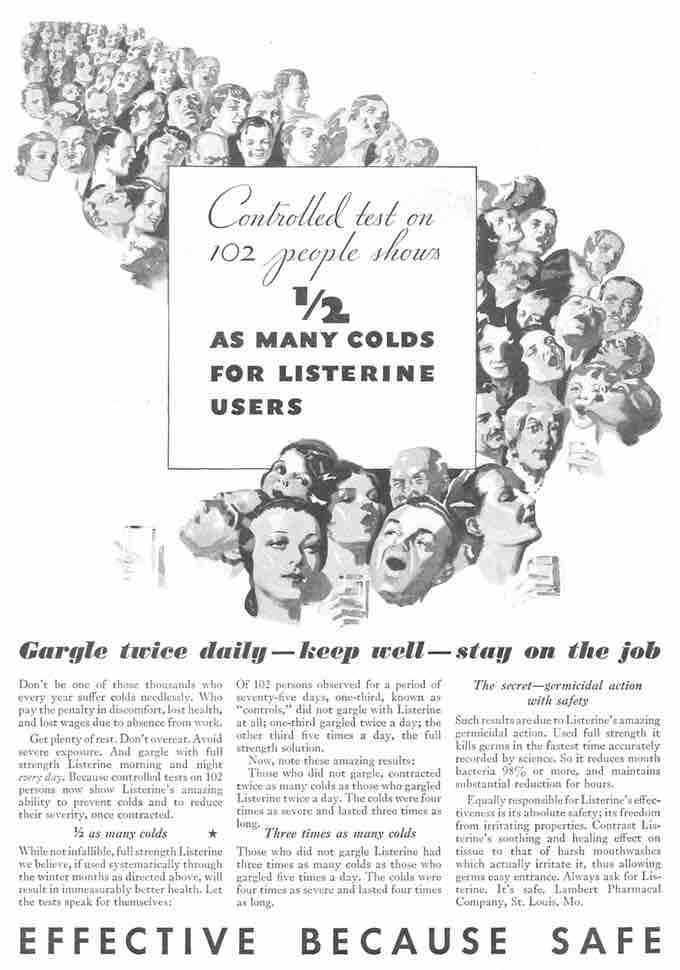When crafting advertising and marketing communications, businesses need to understand the legal ramifications of false advertising as well as the social implications that occur from intentionally misleading the public.
False advertising or deceptive advertising is the use of false or misleading statements in advertising. As advertising has the potential to persuade people into commercial transactions that they might otherwise avoid, many governments around the world use regulations to control false, deceptive or misleading advertising. "Truth" refers to essentially the same concept, that customers have the right to know what they are buying, and that all necessary information should be on the label .

Listerine advertisement, 1932
From 1921 until the mid-1970s, Listerine was also marketed as a preventive and remedy for colds and sore throats. In 1976, the Federal Trade Commission ruled that these claims were misleading, and that Listerine had "no efficacy" at either preventing or alleviating the symptoms of sore throats and colds. Warner-Lambert was ordered to stop making the claims, and to include in the next $10.2 million dollars' of Listerine ads specific mention that "contrary to prior advertising, Listerine will not help prevent colds or sore throats or lessen their severity. "
Advertising is regulated by the authority of the Federal Trade Commission, a United States administrative agency, to prohibit "unfair and deceptive acts or practices in commerce. " While it makes laymen's sense to assume that being deceptive is being unfair, deceptiveness in practice has been treated separately by the FTC, leaving unfairness to refer only to other types. All commercial acts may be deceptive, not just advertising, but noncommercial activity such as advertising for political candidates is not subject to prosecution under the FTC Act.
The goal is prevention rather than punishment, reflecting the purpose of civil law in setting things right rather than that of criminal law. The typical sanction is to order the advertiser to stop its illegal acts, or to include disclosure of additional information that serves to avoid the chance of deception. Corrective advertising may be mandated, but there are no fines or prison time except for the infrequent instances when an advertiser refuses to stop despite being ordered to do so. The actual statute defines false advertising as a "means of advertisement other than labeling, which is misleading in a material respect; and in determining whether an advertisement is misleading, there shall be taken into account (among other things) not only representations made or suggested by statement, word, design, device, sound, or any combination thereof, but also the extent to which the advertisement fails to reveal facts material in the light of such representations or material with respect to consequences which may result from the use of the commodity to which the advertisement relates under the conditions prescribed in said advertisement, or under such conditions as are customary or usual. "
In addition to federal laws, each state has its own unfair competition law to prohibit false and misleading advertising. In California, one such statute is the Unfair Competition Law [hereinafter "UCL"], Business and Professions Code § 17200 et seq. The UCL "borrows heavily from section 5 of the Federal Trade Commission Act" but has developed its own body of case law.